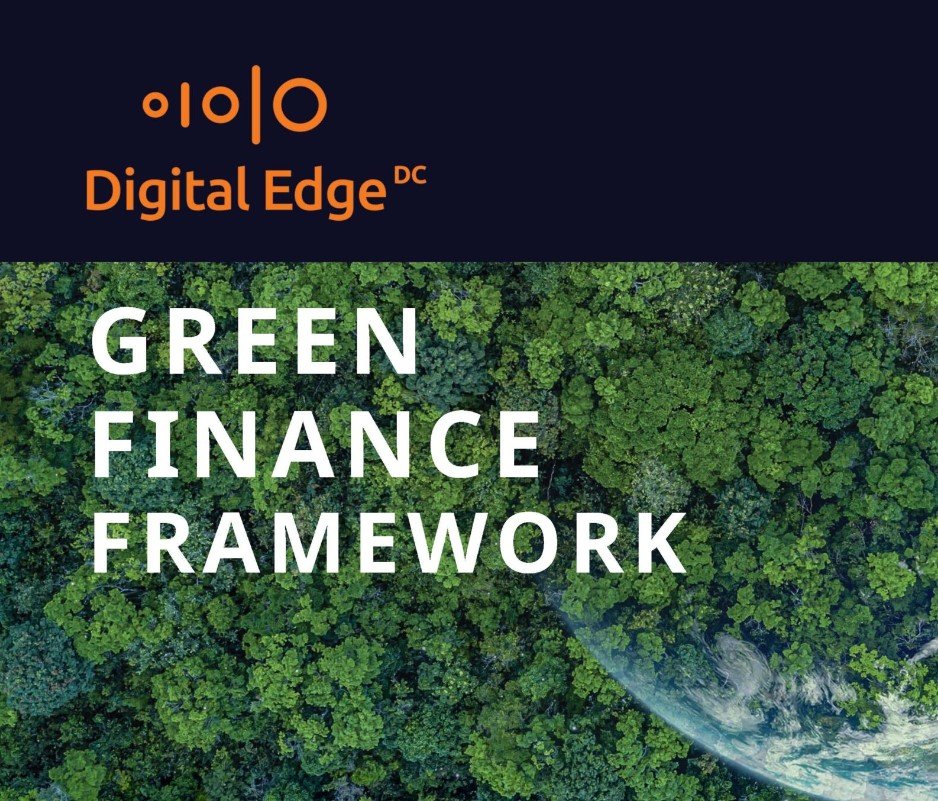In a significant step toward a more sustainable future, Digital Edge (Singapore) Holdings Pte. Ltd., a prominent Asia-Pacific data center platform, has released its first Green Finance Framework. This initiative is aimed at guiding the company’s efforts in securing green financing for data center projects that are not only financially viable but also environmentally sustainable. The framework aligns with Digital Edge’s ambitious environmental, social, and governance (ESG) objectives, including a commitment to becoming carbon-neutral by 2030.
The release of this framework represents Digital Edge’s response to a rapidly evolving tech landscape where sustainability is increasingly critical, especially for energy-intensive sectors like data centers. The company is focusing on building data infrastructure that addresses rising environmental challenges while supporting the region’s digital growth and AI advancements.
Four Green Finance Criteria for Sustainable Development
The new Green Finance Framework spells out four core criteria that projects must meet to qualify for green financing:
- Energy Efficiency: Projects are evaluated based on Power Usage Effectiveness (PUE) scores, with a focus on minimizing energy wastage. Only facilities with a design PUE of 1.30 or lower in cooler climates and 1.40 or lower in warmer regions will be eligible. This threshold underscores Digital Edge’s commitment to high efficiency standards; two of its newest facilities, launched in 2024, already boast PUE levels of 1.25 or below.
- Renewable Energy: Projects must incorporate renewable energy sources to ensure that a significant portion of the center’s power is sustainably sourced. This is crucial for reducing dependency on non-renewable power.
- Green Buildings: Structural and operational aspects must conform to internationally recognized green building standards. This ensures that each facility is designed and managed in an environmentally responsible way.
- Sustainable Water and Wastewater Management: Effective management and conservation of water resources are required. The framework specifies that facilities must incorporate systems to minimize water wastage and improve recycling.
Each of these categories is backed by specific impact indicators to ensure that green finance proceeds are directed towards tangible environmental improvements.

Accelerating ESG Goals Through Financial Accountability
Digital Edge’s Chief Financial Officer, Jonathan Walbridge, emphasized that the Green Finance Framework is pivotal to the company’s growth strategy. “Launching green financing guidelines early in our journey highlights how essential ESG commitments are to Digital Edge. As we tackle rising demand from energy-intensive tech like AI, this framework is instrumental in ensuring our funding strategy aligns with sustainability goals. It also opens avenues to more cost-effective capital.”
To maintain transparency, the framework includes stringent monitoring, tracking, and reporting protocols. Overseen by the company’s ESG Steering Committee, progress will be reported annually through Digital Edge’s ESG Report, allowing stakeholders to assess the impact of green-financed projects.
The framework has also garnered an SQS2 sustainability score from Moody’s, which denotes a “very good” sustainability rating. It aligns with international standards such as the International Capital Market Association’s (ICMA) Green Bond Principles (GBP) and the Green Loan Principles (GLP) of 2023.
Strategic Partnerships Driving Sustainable Financing
The framework’s creation and rollout were backed by major financial players, with Crédit Agricole CIB and ING Bank N.V. (ING) serving as Green Structuring Coordinators. These partnerships underscore the critical role that established banks play in guiding organizations through the intricacies of green finance.
Carmen Tsang, Head of Sustainable Investment Banking for Greater China at Crédit Agricole CIB, praised Digital Edge’s efforts, saying, “The Green Finance Framework sets a commendable example within the sector. Digital Edge’s commitment to sustainable infrastructure development reflects its role in supporting Asia’s journey toward decarbonization.”
Andrew Chew, Director of Sustainable Finance for Asia Pacific at ING, added, “Our collaboration with Digital Edge underscores ING’s dedication to empowering data center providers to participate in the green finance market. Developing a green finance framework and navigating the second-party opinion (SPO) process is complex, but with the guidance of seasoned banking partners, companies can meet these challenges confidently.”
South Korea’s SEL2 Project: A Green Finance Milestone
Digital Edge’s commitment to green financing was exemplified last year with the green loan for the SEL2 data center in Seoul, South Korea. Valued at KRW 440 billion, the SEL2 financing was the first of its kind for a data center project in South Korea and serves as a model for green financing in the region. This loan also adheres to the principles laid out in the new Green Finance Framework, showcasing the company’s consistency in applying sustainability standards across its financing activities.
A Sustainable Path Forward
Digital Edge’s framework is a testament to the role financial strategy plays in supporting ESG objectives within the data center industry. With technological advancements driving ever-higher energy demand, the need for responsible infrastructure is greater than ever. This framework aims to ensure that Digital Edge’s growth is accompanied by progress toward sustainability.
As companies across the Asia-Pacific region strive for greener, more resilient infrastructure, Digital Edge is positioning itself as a pioneer in sustainable data center development. The framework provides a roadmap not only for the company’s own facilities but also offers a model that other industry players might follow in the years to come.
